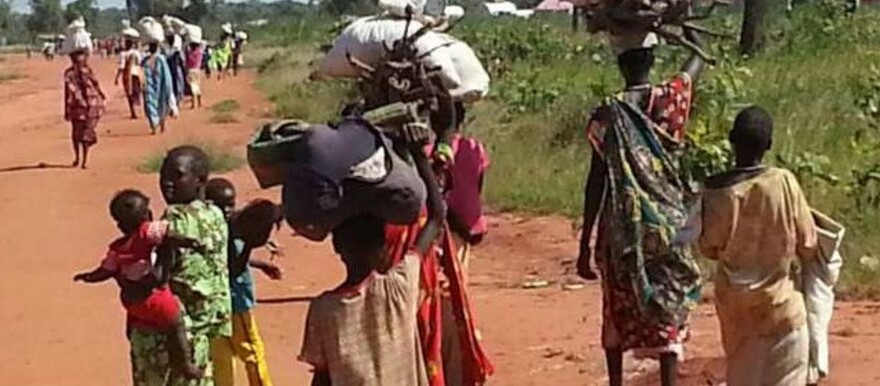In a recent development, 2,758 Sudanese refugees, predominantly women and children, have sought refuge in South Sudan’s Ruweng Administrative Area, as reported by the chairperson of the Sudanese diaspora community in Pariang.
Speaking to Radio Tamazuj on Wednesday, William Minyiel Kiir, the Assistant Commissioner for Refugees in Ruweng Administrative Area, revealed the details of this influx, stating, “The refugees from Sudan, hailing from Khartoum, El Obeid, and Kaduli, have arrived since the onset of the conflict, spanning from April to September.”
The government of Ruweng Administrative Area has reaffirmed its commitment to providing assistance to the Sudanese refugees who fled the conflict in the past six months.
William Minyiel Kiir added, “We have partnered with organizations such as WFP and UNHCR to distribute food to them on a monthly basis, every 15th day. In the next four days, the Sudanese refugees will receive their next round of food distributions.”
Chairman of the Sudanese Diaspora Community in Ruweng Administrative Area, Idris Muhammad Idris, said that the refugees were warmly welcomed by senior government officials of the administrative area. They were not only provided with essential food supplies but also relocated to the Panyier refugee camp.
Idris stated, “The conflict in Sudan has had a profound impact on Ruweng, with many individuals from neighbouring Sudanese states seeking refuge here. The administrative government extended a warm welcome and relocated some of them to Panyier camp, while humanitarian organizations ensured they received vital food supplies.”
The economic situation in Ruweng has also been adversely affected by the war in Sudan, exacerbated by the closure of the road connecting the administrative area to South Sudan’s capital, Juba, due to flooding and heavy rains. Nevertheless, the humanitarian situation remains stable, thanks to the support of the host community and Sudanese traders assisting the refugees.
Idris highlighted the dire health conditions of the refugees, with malaria and fever spreading among them, leading to daily reported cases.
Appealing for peace, Idris, the leader of the diaspora community, called upon the warring parties in Sudan to engage in constructive dialogue. He said, “The ongoing war is causing immense suffering. Peace can never be achieved through conflict. The ones who are suffering the most are Sudanese citizens. I hope the warring parties can heed the voice of reason and negotiate for lasting peace. Sudan belongs to all of us.”
Mordiya Abdel-Aziz, one of the affected refugees, shared her perspective, saying, “The war in Sudan has forced us from our homes in different parts of the country to become refugees in South Sudan. I earnestly hope for an end to the conflict. The situation is heart-wrenching, and war can never lead to any positive outcome. The first victims are the people of Sudan, and I implore the warring parties to listen to reason and work towards a peaceful resolution. Sudan is home to us all.”




